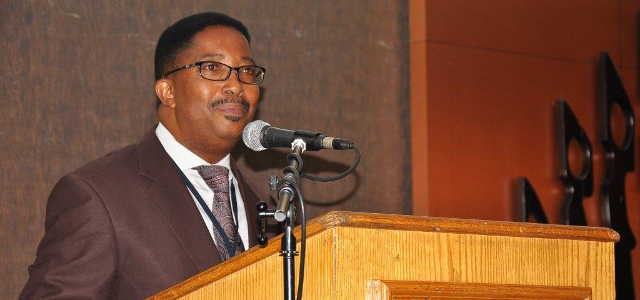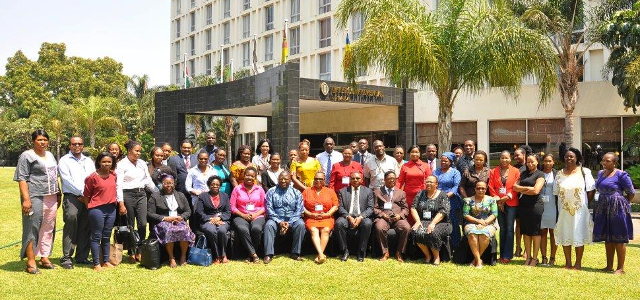Speaking during the SADC Gender Mainstreaming in the Water Sector Workshop in Lusaka, Zambia, Dr. Joseph Pitso, Head of the Gender Unit at the SADC Secretariat said that despite the commendable efforts initiated by SADC Member States in mainstreaming gender, the transformation of critical structures along a gender-sensitive perspective remains a challenge.
“Given that our Member States seek to establish a common future, we all have a responsibility to make our Revised SADC Protocol on Gender and Development contribute to this future. The adoption and subsequent signing of the Revised Protocol will ascertain that all the Member States are committed towards this envisaged common future. As a region, we recognize that women’s and girls’ economic empowerment sets a direct path towards achieving gender equality and is a critical element of the 2030 Agenda for Sustainable Development. Achieving this will require all actors, whether governments, international institutions, civil society organizations or the private sector, to move beyond ‘business as usual’ and employ new ways of thinking and acting”, he noted
Dr. Pitso indicated that the SADC Secretariat was at the initial stage of developing the regional multi-dimensional Women's Economic Empowerment Programme, with a view to fulfilling this priority. He, however, emphasized that for SADC to successfully achieve women’s economic empowerment in its Member States, it entailed close cooperation between ministries responsible for gender and those responsible for, among others, finance, trade, agriculture, infrastructure, science and technology and strategic stakeholders.

He said that the SADC Gender Unit has developed Gender Mainstreaming Toolkit as a step by step guide for the integration of gender into the SADC regional Integration Agenda.
“We implement Gender Mainstreaming by ensuring that the values and principles which foster gender equality and equity are systematically infused and entrenched in all aspects of the SADC organizational culture such as policies, programs, projects, rules, leadership and management styles, staff recruitment procedures, appointments and promotions, terms and conditions of employment, disciplinary measures, staff development and conflict resolution strategies and processes,” he added.
The Gender Unit works with all directorates through Gender Focal Points to ensure that SADC continues to develop its Gender Equality and Women Empowerment Policy and work strategically to achieve real change. While gender mainstreaming is an essential tool, it must be combined with special measures for gender equality as enshrined in Article 5 of the Revised SADC Protocol on Gender and Development. This dual approach is necessary to move ahead on gender equality.
Gender mainstreaming is a priority and a critical cross-cutting issue required for achieving the SADC goals and objectives as demonstrated in the SADC Treaty, Regional Indicative Strategic Development Plan (RISDP) and the SADC Protocol on Gender and Development among others.
The Gender Mainstreaming in the Water Sector Workshop was held from 27 – 28 September 2017 in Lusaka, Zambia. The workshop was targeted at the Gender Focal Points in the water sector and SADC Gender Machinery Representatives from the 15 SADC Member States.
